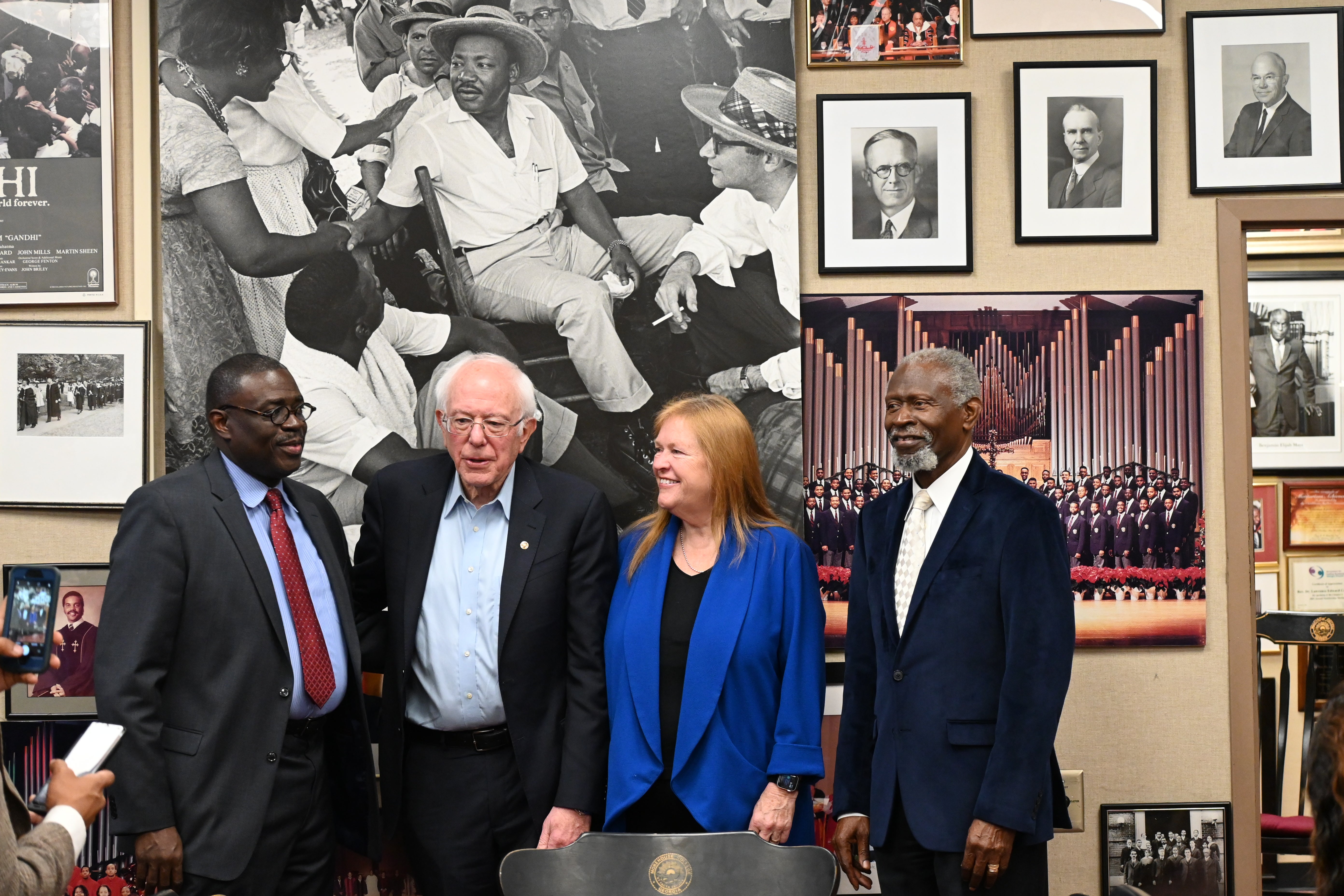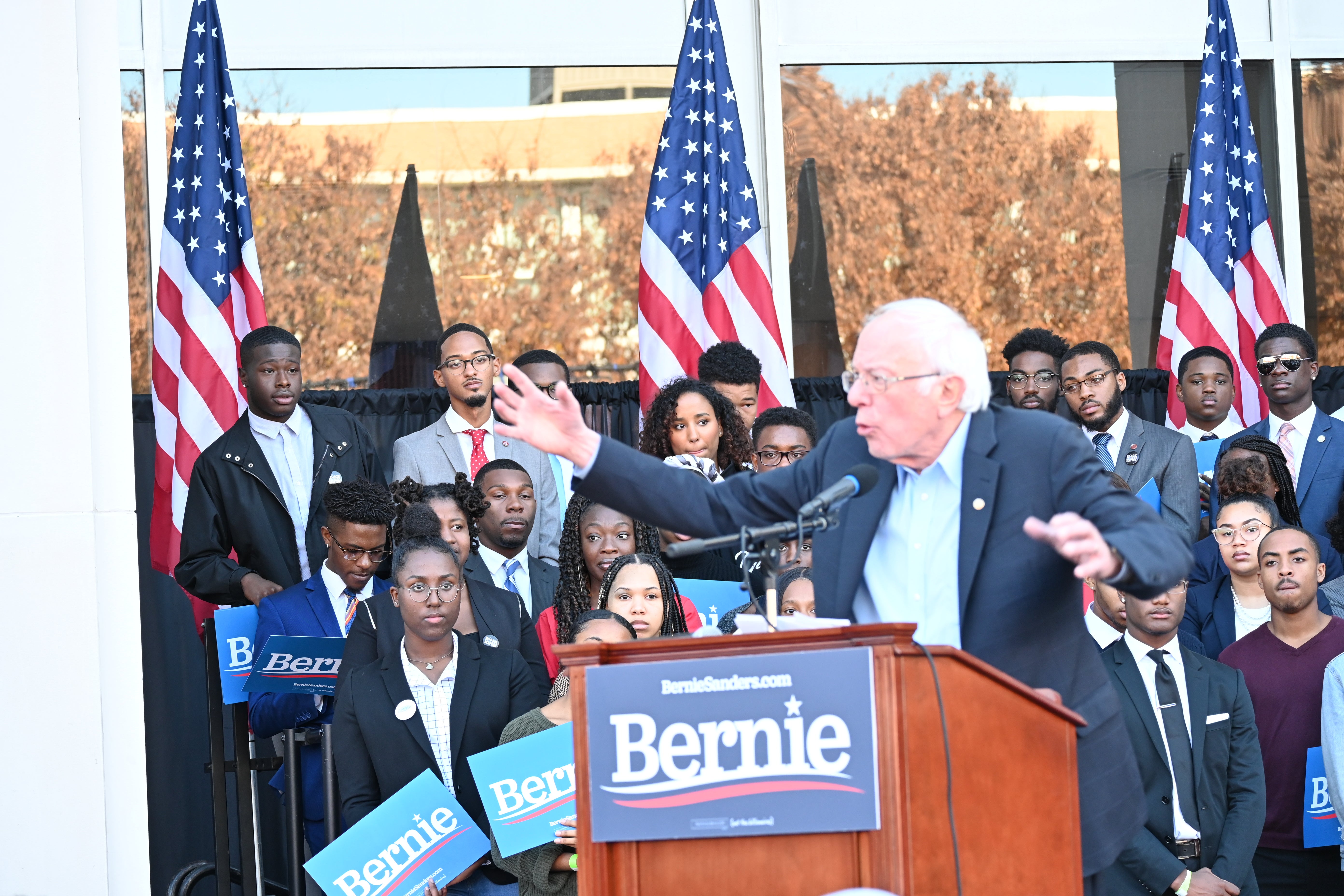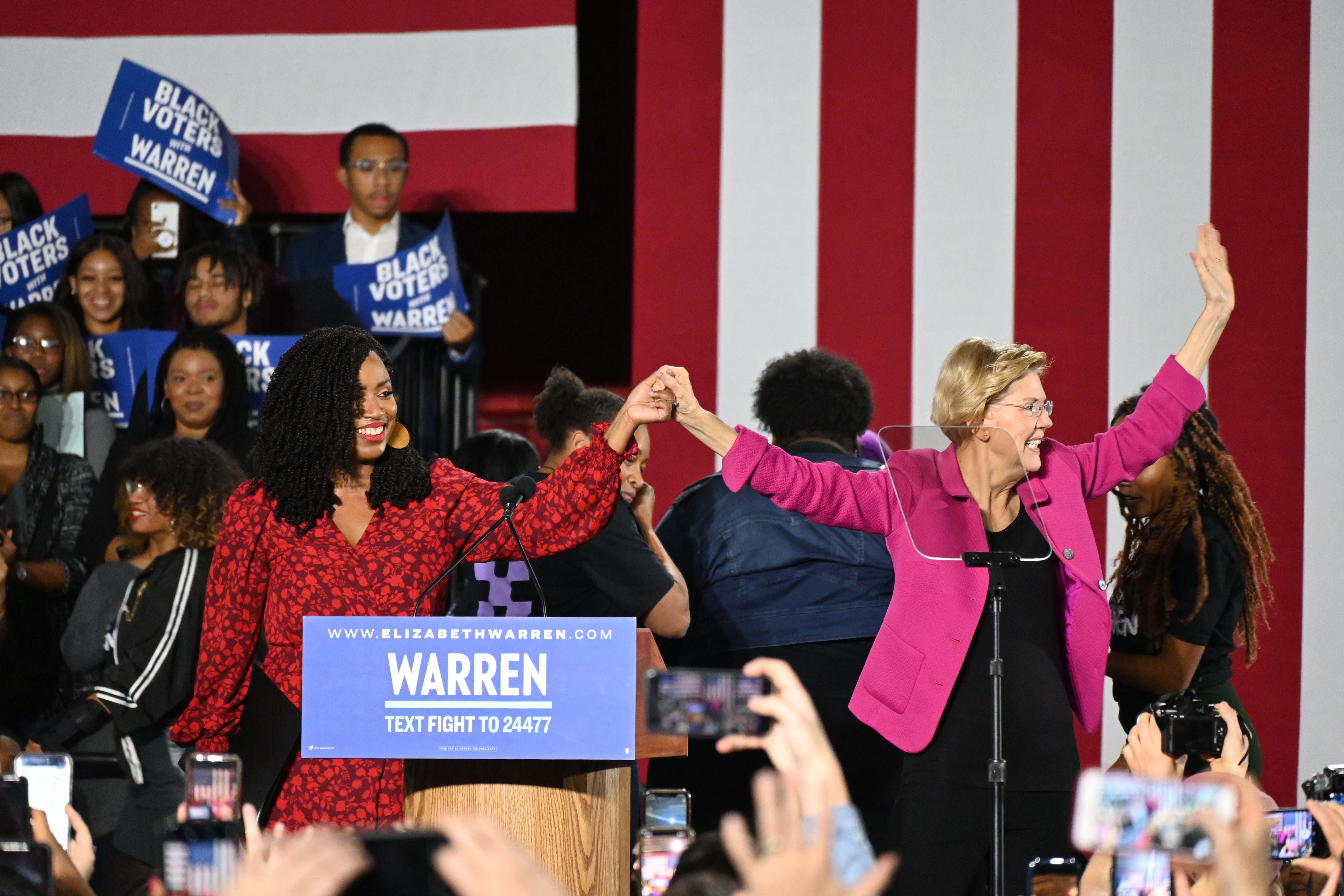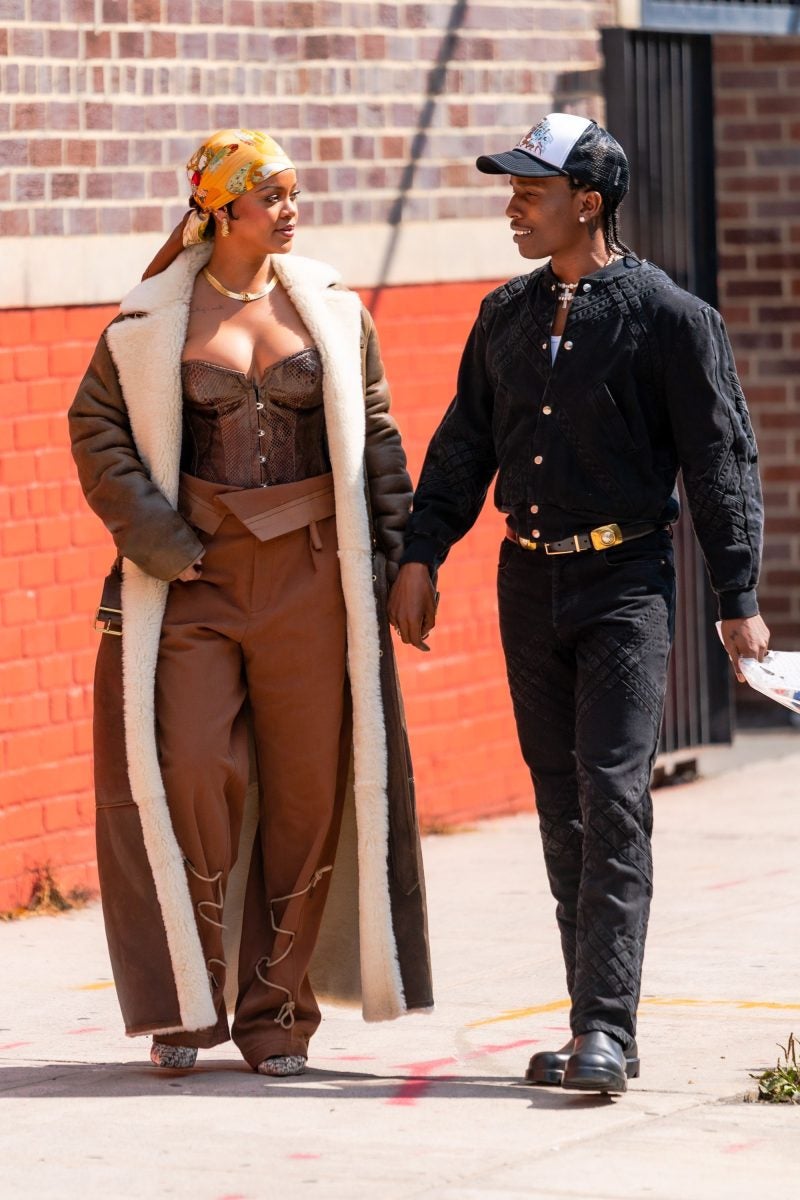One week before America sat down in front of their Thanksgiving tables to break bread with family and friends, eyes were glued on a Democratic debate stage in Atlanta, Georgia. November’s event was special for a number of reasons. Most notably because it took place in a studio built by a Black man, in the city repped by John Lewis, in a state where just one year prior a Black woman was denied a fair chance at being its governor.
Voters had an opportunity that Wednesday night to watch 10 hopefuls defend their case for why they should be America’s 46th president. The next day ESSENCE cameras followed four of them on the campaign trail in the birthplace of Martin Luther King, Jr., and the home of the Black college trifecta known as the Atlanta University Center (AUC).
Our candidates had a lot on their mind that day, and a lot to prove. Many of them kicked off that Thursday with early-morning show appearances. Five presidential candidates spoke at the National Action Network’s Southeast Regional Conference, engaging with voters and the Rev. Al Sharpton at the legendary Paschal’s Restaurant which once played host to the Rev. Dr. Martin Luther King, Jr.’s staff meetings.
And while those five were there discussing their plans for action on civil rights and racial equality going into the 2020 election, former 2020 hopeful Senator Kamala Harris had convened a conference room full of Black women across town, just ahead of a South Carolina tour focused on the party’s most loyal voting bloc. On the itinerary that morning was defending her prosecutorial record, answering questions about her electability, but mainly just attempting to connect with voters who may or may not have solidified their support for California’s former Attorney General.

The conversation about electability is, “Umm — I just don’t know if America is ready for a Black woman to be President of the United States,” Harris mimicked. “‘I’m ready,’ is what they say. ‘I just don’t know if my neighbor is ready.’” Weeks later Harris decided to end her bid for the presidency, leaving the question of whether or not the country is ready for a Black woman to be Commander-in-Chief to be determined.
Roughly five minutes away from the Westin hotel’s packed ballroom, candidates were placing calls at Stacey Abram’s-led Fair Fight Georgia. The Spelman College grad founded the voting rights organization in the wake of her gubernatorial loss which was directly linked to voter suppression.

“My political future will be determined in the future. But my present and the work that needs to be done before my party chooses the nominee will be focusing on electoral opportunities and fighting voter suppression,” Abrams told the Atlanta Journal-Constitution at the launch of Fair Fight 2020 in August.
The day’s event was set up in Ebeneezer Baptist Church, most famously known for being the church where Martin Luther King, Jr. was ordained at 19, and where he served as co-pastor to his father from 1960 until his dying day, as well as where Dr. King’s mother, Alberta King, was assassinated in 1974 as she played the organ. A number of candidates, including South Bend, Indiana, Mayor Pete Buttigieg; Minnesota Sen. Amy Klobuchar, and New Jersey Sen. Cory Booker picked up the phone and spoke to Georgia voters who risked being purged from the rolls. In mid-December, approximately 309,000 of those registered voters were, in fact, purged.

Booker took a few minutes to speak with us then, and weighed in on the importance of aligning himself with an organization that is doing the important work in the name of civil rights.
“We have to understand that change has never come from Washington,” the Democratic candidate told ESSENCE. “We need a movement in our country, a larger movement for our rights. A civil rights movement, voting rights movement, women’s rights movement… I know it’s important to be connected to the grassroots and to be apart of supporting grassroots organizations that ultimately are the difference makers and the change we want in Washington.”
As a number of candidates spoke one-on-one with voters around the state, Sen. Bernie Sanders was readying to deliver a speech at Morehouse College. The Sanders campaign, in the days prior, visited with a number of HBCUs to connect with young voters on their respective campuses. In the moments leading up to his appearance on an outside stage, we were given the opportunity to sit down with the junior senator from Vermont inside of the school’s MLK chapel.

Coming off of an HBCU tour, Sanders admitted that even five years ago, he did not fully grasp the importance of our nation’s great institutions, but today he stands as a staunch supporter of the colleges and universities that now stand in jeopardy because of funding.
“There is no question that at a time when we do not have enough African American professionals — we need more African American doctors, nurses, social workers, psychiatrists, teachers, it is to a very significant degree, the HBCUs who are providing that,” Sanders conceded. “And it is no great secret that a lot of HBCUs are struggling today. And we are going to provide the kind of support that they need.”

Days after we spoke, Sanders rolled out a multi-billion dollar plan to make private and public HBCUs tuition-free, pledged to create an Executive Order to eradicate systemic racism impairing HBCUs, and championed the cancelation of burdening public loan debt held by HBCUs.
But Sanders wasn’t the only candidate who placed an emphasis on Black colleges during their time in the southern city. Minutes away from the all-male campus at Morehouse stands Clark Atlanta University where Elizabeth Warren came out to a large crowd of supporters, proclaiming, “Can we just hear it for America’s HBCUs?”

Warren has devoted a significant amount of time on the campaign trail working to court Black voters. On this particular day, she had help from Congresswoman Ayanna Pressley, who in the weeks leading up to her appearance in Atlanta, had broken with fellow “Squad” colleagues and endorsed the senator from her home state of Massachusetts. Pressley’s presence would be needed as a group of protestors plotted to disrupt Warren’s speech over an issue of school choice.
Once the freshman congresswoman diffused the situation, Warren was able to finish, telling the story of Atlanta’s Washerwomen Strike. She told the hundreds gathered, “No matter what fight you’re in today, no matter how steep the climb feels, there were fighters who were here before you. Fighters we can learn from.”

Warren also made a commitment as president to continue sharing the lessons of Black history. “Those lessons will live in every part of my presidency, Warren assured rally-goers. “And I will ask you to hold me accountable for that promise every single day.”
Registered voters in the United States have less than a year to decide who they’ll hold accountable for taking America into its next phase. With the first caucuses just weeks away and the question of viability being raised daily, the country will be looking to candidates to bring an increased level of transparency and conviction. Black voters, in particular, will require it.

























